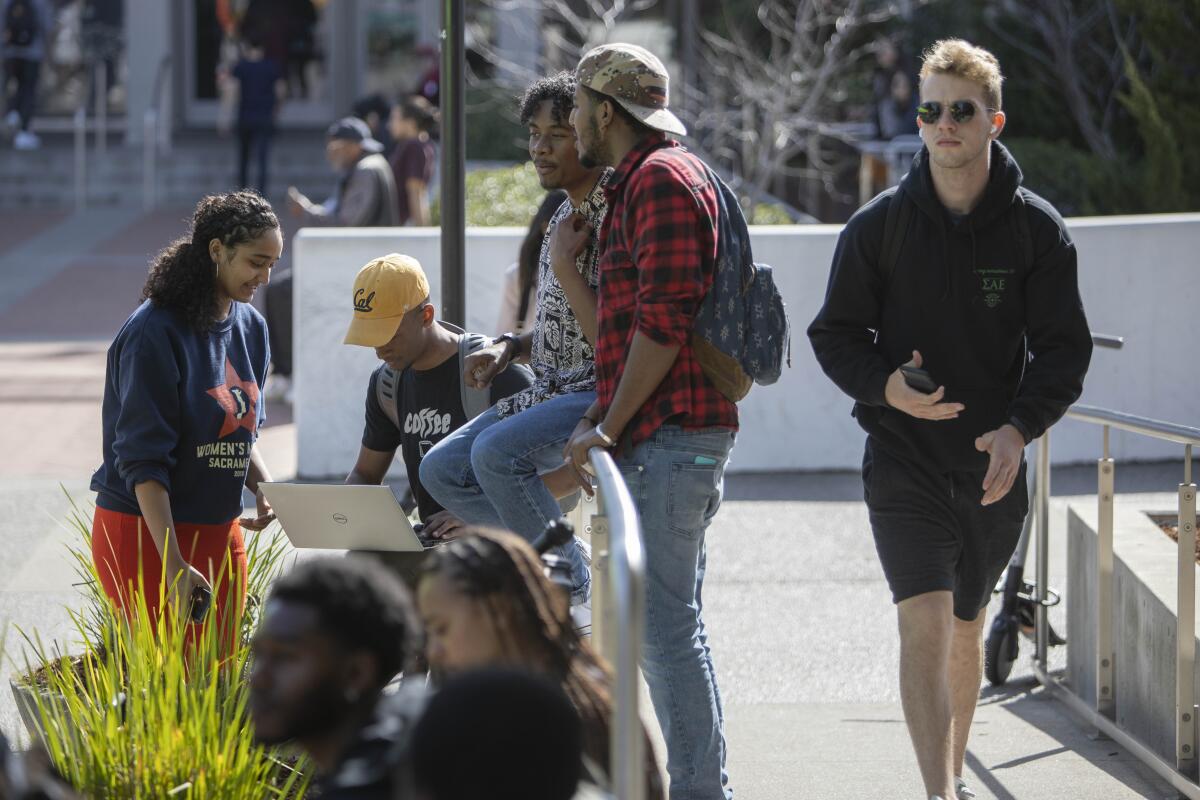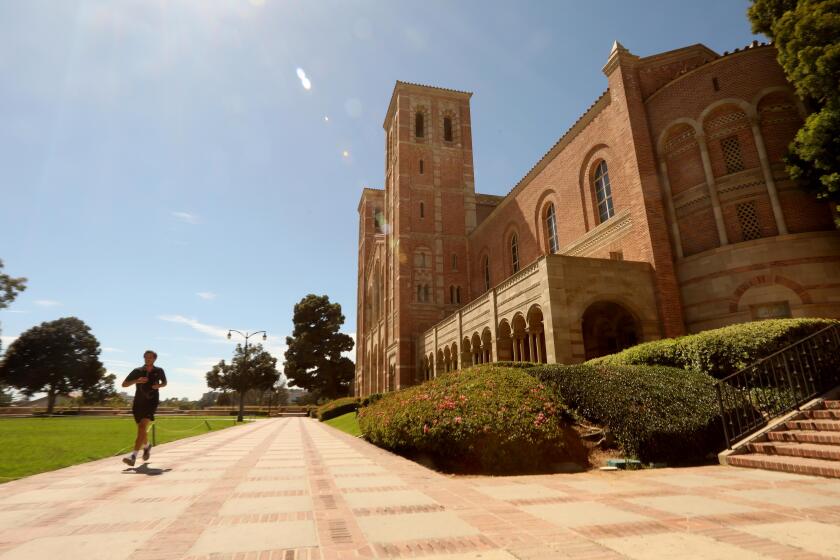Why affirmative action measure failed in California

- Share via
SACRAMENTO — In a year in which the nation was confronted with racial injustice and a divisive presidential contest inflamed its partisan divide, advocates fighting to reinstate affirmative action programs in the deep-blue state of California saw the November election as their best opportunity in decades.
But that hope evaporated Wednesday when election returns showed that voters soundly rejected Proposition 16.
The measure faced an uphill challenge from the outset, hobbled by a truncated campaign that began after the California Legislature added Proposition 16 to the ballot in June and the deadly COVID-19 pandemic, which made door-to-door campaigning and other grass-roots voter outreach difficult.
Ward Connerly, who helped lead the campaign against the measure, said California voters saw Proposition 16 as an affront to the principle of fairness. Opponents also said the outcome showed that the Democratic-led Legislature has drifted too far left of the electorate.
“[Proponents] still have not persuaded the people that it is OK to discriminate against one group of people in the interest of trying to benefit another,” Connerly said Tuesday night. “This was a classic case of the political establishment going up against the people. And the people kick their butts.”
Connerly, a former UC regent, championed the end of affirmative action in California in 1996 with Proposition 209, a landmark policy enacted in an era of deep division in California, stoked in part by Republican-led efforts to bar bilingual education and outlaw public benefits for immigrants who entered the country illegally. Proposition 16 would have rescinded Proposition 209.
Even after raising more than $20 million and far outspending their opponents, Proposition 16’s supporters were never able to break through the din of a 2020 election overwhelmed by the presidential race and the onslaught of campaign ads for high-stakes ballot measures to transform the gig economy and California’s property tax collection.
Thomas Saenz, president of the Mexican American Legal Defense and Educational Fund and a co-chair for the campaign supporting Proposition 16, said the greatest challenge was educating voters about how affirmative actions programs would make California more just and equal.
“Our challenge to inform was particularly heightened for those who were too young to remember Proposition 209,” he said. “We had to explain what affirmative action is because they have no personal experience of what it is in their lifetime or political consciousness because we haven’t had it for a quarter-century.”
Under Proposition 16, public universities would have been allowed to consider race, sex, color, ethnicity or national origin to address diversity.
That was especially true among Latino voters in California, who tend to be younger on average, Saenz said.
Independent polls by UC Berkeley’s Institute of Governmental Studies and the Public Policy Institute of California showed weak support for Proposition 16 as late as mid-October. Even more telling, the surveys also showed that Latino voters in California — who account for roughly a quarter of the electorate — were evenly split. White voters were firmly against the measure, while Black voters were strongly in favor.
“This issue is not something that’s been litigated much within the Latino community at all until this year and it’s kind of late to be starting to educate voters on it,” said Karthick Ramakrishnan, a UC Riverside professor of public policy and political science who founded AAPIData.com, which publishes demographic data and policy research on Asian Americans and Pacific Islanders. “What’s the old adage? If you have to explain it, you’re already behind.”
University of California officials expressed disappointment Wednesday that voters rejected Proposition 16 but vowed to continue expanding the student body’s cultural, racial, geographic and socioeconomic diversity.
“UC remains steadfast in its commitment to attract and support a student body that reflects California’s dynamism and diversity, despite this setback,” UC President Michael V. Drake said in statement. “We will continue our unwavering efforts to expand underrepresented groups’ access to a UC education.”
The measure had been broadly endorsed by the UC Board of Regents, all 10 campus chancellors and major student organizations, who blamed the 24-year statewide ban on affirmative action for particularly hurting Black and Latino student enrollment. Latinos are the system’s most underrepresented demographic, making up 31.5% of in-state freshmen last fall compared with their 44.7% share among California high school graduates eligible for UC admission.
By comparison, Asian Americans made up 40.3% of freshmen and 19.9% of that qualified pool; whites were 20.6% at UC and 27% of eligible students and Black freshmen were 4.5% at UC and 4.2% of those who met systemwide admission standards.
More to Read
Sign up for Essential California
The most important California stories and recommendations in your inbox every morning.
You may occasionally receive promotional content from the Los Angeles Times.
















